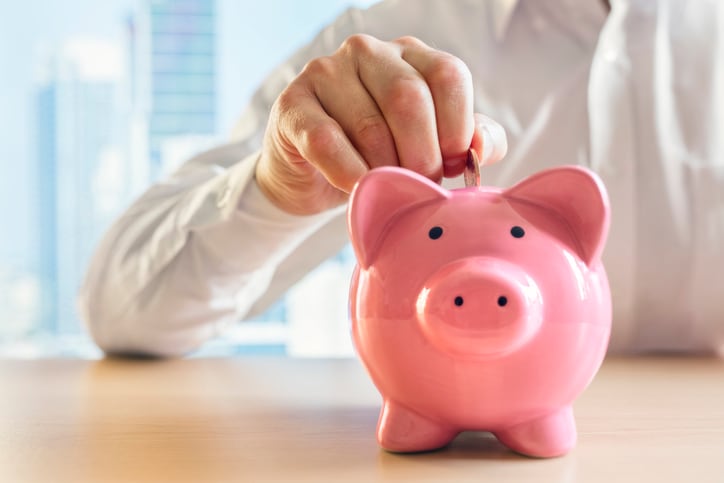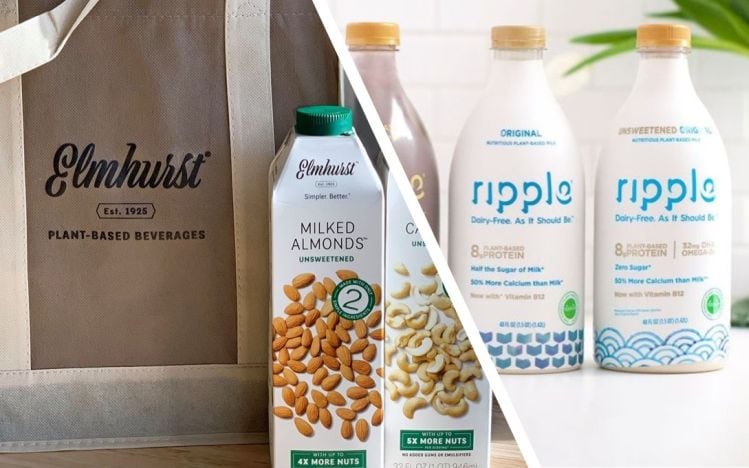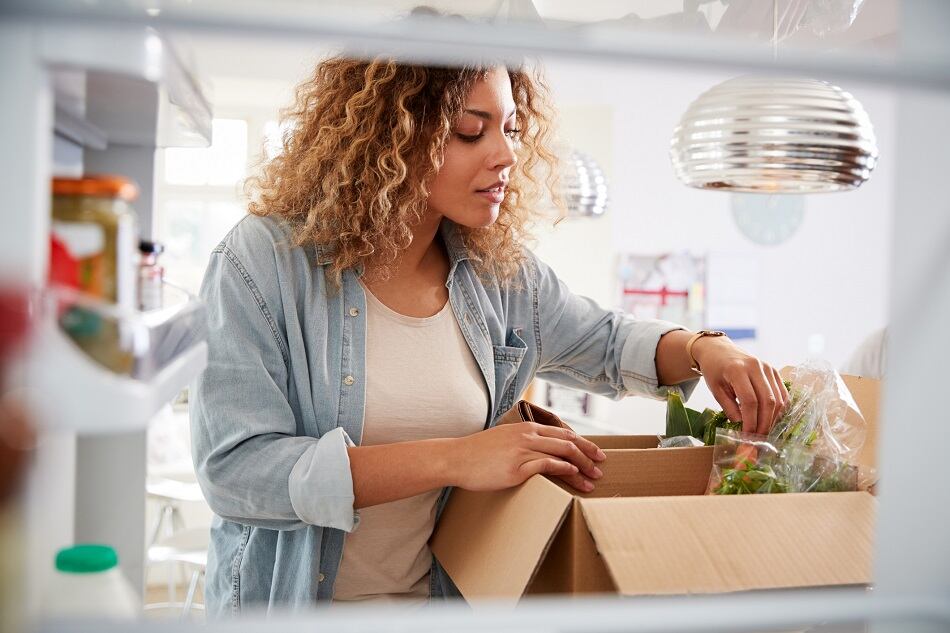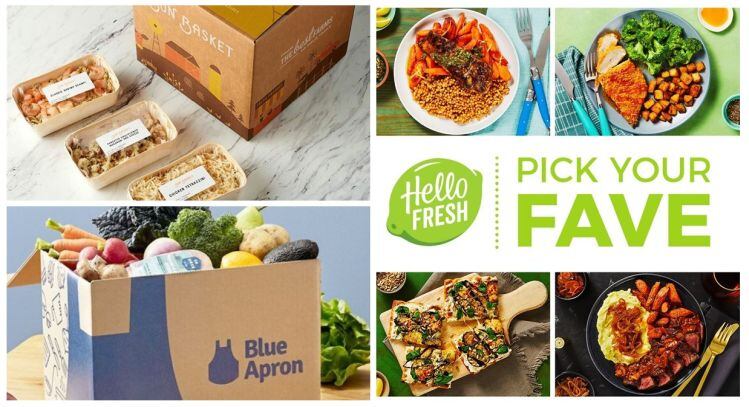Smart food and beverage brands will potentially flourish in 2020 if they can adapt to changing consumer needs and shopping habits, said Arif Fazal, who runs Blueberry Ventures - a venture capital fund investing in emerging and innovative food/bev brands.
But it’s a tough time to raise money if you’re starting out, he told FoodNavigator-USA: “There are a lot of folks out there very skittish right now, just wanting to see how the next 30, 60, 90 days play out. Those already with strong partnership with retailers are in a great place… but those looking to meet or waiting for a reset are going to have a hard time as meetings aren’t there right now and resets are getting pushed back.
“The double whammy is that generally funders of newly launched businesses and brands are angels who tend to be the first to raise the cautionary flag (rightfully so) given they are investing off their balance sheets, which have likely taken a hit over the last month,” he added.
'Everyone is trying to leverage online, whether it be Amazon or DTC [direct to consumer]'
Brands without the immediate prospect of ramping up bricks & mortar distribution (as shelf resets are delayed and retailers are more focused on keeping shelves stocked with essentials than onboarding new brands right now), are focusing on building their online business, he added: “Everyone is trying to leverage online, whether it be Amazon or DTC [direct to consumer].
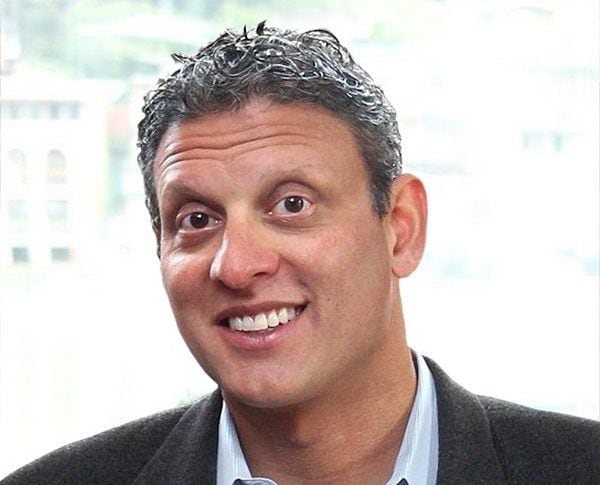
“It’s technically easier to get to market, but fulfillment has been a challenge, so operationally isn’t as easy as it may seem.”
The key is to be as capital efficient as possible “so as to buy some time to generate traction in the marketplace and let the macro environment play out a bit,” he said.
What trade offs will consumers make?
As for consumer behavior, he said, “I don’t think consumers will trade out of health and wellness; but perhaps they will trade down from more premium to less, but the penny/dollar difference isn’t that large in certain categories.
"I think tradeoffs will come from paying for convenience with the big caveat that COVID-19 may not allow them to if home sheltering etc hangs around for a while.”
But small food indulgences (candy/chocolate/snacks/treats) will likely do well regardless, he predicted. “Consumers want to consume and indulge and the little things will be big things while the big things may falter.”

Michael Movitz at consultancy Movitz Group - which works with scores of natural/organic brands - said in a blog post: "Among the early stage investors I spoke with, the vast majority of deals and transactions that were in play are moving forward. However, middle and upper middle market deals are on pause."
He added: "Many PE firms and investors are prioritizing their attention to support their current portfolio rather than seeking new investments. Investors are pushing their portfolio companies to focus on collecting their receivables and enforcing cash terms to maintain cash flow.
"Market uncertainty is forcing downward pressure on valuations in general, but liquidity remains in the system (there's still money to invest)."
The key for brands right now is to preserve capital and increase capital efficiency, he said, adding:
- Leverage existing investors for bridge capital.
- Investigate if the SBA Disaster Loan Program is a good solution for your company’s situation
- Utilize the provisions in the government stimulus package once finalized and announces. Loan requirements are likely to be relaxed in the government’s effort to distribute as much capital as possible, plus interest rates could be lower.
- If you’re in a raise round or about to start, raise more money than you originally planned, to ensure more runway and cushion during uncertainty. In your investor-facing materials, include information about the impact of the pandemic on your business and how you’ll address the new realities, including a possible recessionary environment.
- Continue reaching out to new investors to establish connections and set the stage for post-crisis emergence.
- Expect to be flexible on terms, especially valuations and dilution. Terms are also likely to be more favorable to investors. If your business is ultimately worth what you think it is, in the long run you’ll achieve that valuation. Right now, check your ego: The priority is to keep your eye on a sustainable business model so you’re still in business to achieve that valuation and exit. That said, a good business is a good business and an investor will recognize this."
VMG Partners: The right brands will continue to find capital
Wayne Wu, managing director at VMG Partners - which has invested in scores of successful consumer brands from Health Warrior and Spindrift to Daily Harvest – said: “Uncertainty generally crushes equity and debt markets because of the fear of the unknown, but even in uncertain and challenging times there will be a cohort of investors and lenders that continue to support companies and entrepreneurs.

“VMG was set up just before the financial crisis; we were very much in business then and are very much in business now and will continue to support brands and companies.”
He added: “The right brands will continue to find capital, but will there be challenges for some brands to find equity and debt before people figure out where the bottom of the market? Inevitably yes, it’s harder to find [capital] today than it was a month ago, but it’s still available for those that are highly qualified.”
Team, supply chain, liquidity
In conversations with industry partners and contacts, said Wu, “We put things into three buckets: team [employee safety, navigating governmental support programs, etc]; supply chain [procurement, inventory planning, business continuity planning], and liquidity [thinking through banking relationships, etc].
“And if you were hoping that 2020 was going to be a breakout year [for picking up brick & mortar accounts] then focusing on online for now is a great way of weathering the storm.”
The power of Amazon
While most of Country Archer's premium meat snacks business is via bricks & mortar retail, said CEO Eugene Kang, the pandemic had “shown just how strong and powerful Amazon is.”
He added: “We might need to put more resources towards Amazon.”
‘I think you’ll see buyers rationalize their sets as consumers try and stretch their dollars’
As for new products, Kang already had commitments from two key retailers for a new zero sugar jerky line introduced at the beginning of the year, but acknowledged that many buyers are “still trying to figure this whole thing out” and are not focused on onboarding new brands and lines, although that could change if things calm down a little in stores.
“I think you’ll see buyers rationalize their sets as consumers try and stretch their dollars.”
As for its manufacturing set up, Country Archer – which uses co-packers but also has its own USDA inspected production facility - has more flexibility than many brands to build inventory to meet higher demand and ensure continuity [should the plant’s operations be disrupted down the road], but said there was no room for complacency.
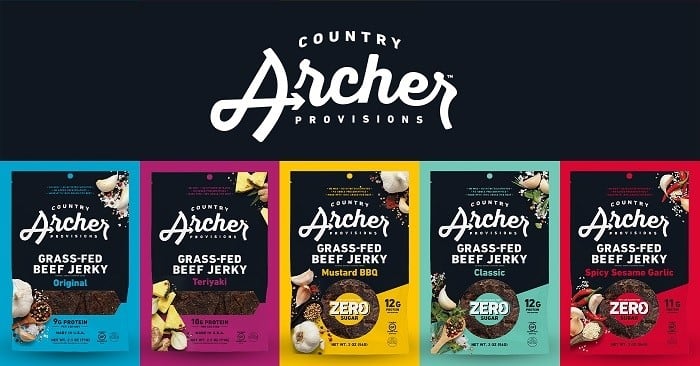
“We can’t check people’s temperatures or test them [for COVID-19] before they come into work, but we’ve said to employees that if you’re not well, take advantage of our increased paid sick time and don’t come into work.”
While jerky is more expensive than salty snacks, it provides value as it is a high protein product, and as at-home food consumption is set for sustained growth as consumers stop eating out, demand for such products may well see a sustained uplift, although it’s hard to be sure how things will play out, he said.
“We’re also in line with the biggest brands [on price per ounce].”

